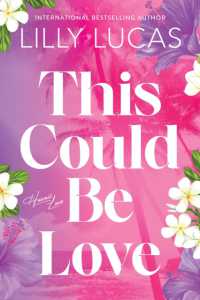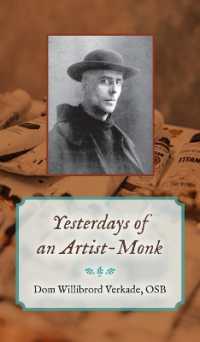Description
Gloria E. Anzaldúa, best known for her books Borderlands/La Frontera and This Bridge Called My Back, is one of the foremost feminist thinkers and activists of our time. As one of the first openly lesbian Chicana writers, Anzaldúa has played a major role in redefining queer, female, and Chicano/a identities, and in developing inclusionary movements for social justice.
In this memoir-like collection, Anzaldúa's powerful voice speaks clearly and passionately. She recounts her life, explains many aspects of her thought, and explores the intersections between her writings and postcolonial theory. Each selection deepens our understanding of an important cultural theorist's lifework. The interviews contain clear explanations of Anzaldúa's original concept of the Borderlands and mestizaje and her subsequent revisions of these ideas; her use of the term New Tribalism as a disruptive category that redefines previous ethnocentric forms of nationalism; and what Anzaldúa calls conocimientos-- alternate ways of knowing that synthesize reflection with action to create knowledge systems that challenge the status quo.
Highly personal and always rich in insight, these interviews, arranged and introduced by AnaLouise Keating, will not only serve as an accessible introduction to Anzaldúa's groundbreaking body of work, but will also be of significant interest to those already well-versed in her thinking. For readers engaged in postcoloniality, feminist theory, ethnic studies, or queer identity, Interviews/Entrevistas will be a key contemporary document.
Table of Contents
Acknowledgments -- Risking the Personal -- An Introduction -- 1. Turning Points -- An Interview with Linda Smuckler (1982) -- Early Writing Experiences; Grade School; High School; A Sense of Difference; College; "My Task": Making Face, Making Soul, Making Heart; Sexuality/Spirituality/Writing; First Turning Point: Teaching (and) Chicano Culture; Second Turning Point: Entering the Feminist Movement; The "Path of Writing"; Third Turning Point: Becoming a Full-Time Writer; Another Turning Point: Teaching "La Mujer Chicana"; This Bridge; Audience and Voice; Publishing and "El Mundo Zurdo"; Writing the Body, Becoming a Mouth; Other Influences -- 2. Within the Crossroads -- Lesbian/Feminist/Spiritual Development An Interview with Christine Weiland (1983) Early Life; Bodies and Health; Religions; "Yoga of the Body"; "Off the Rational Track"; Meditations, Making Love to the Divine; Spirituality and Power; Becoming Lesbian?; Ethnic Pride, Worldwide Oneness; "The Gathering of the Tribe"; "La Facultad" -- 3. Lesbian Wit -- Conversation with Jeffner Allen (late 1980s) -- Labels; Shapeshifting, Changing Identities; Bridges, Rainbows, Coalitions; Reading; Compartmentalized Identities; Imaginai, Psychic Identities; Lesbian Writings and Audiences -- 4. Making Choices 151 -- Writing, Spirituality, Sexuality, and the Political -- An Interview with AnaLouise Keating (1991) -- This Bridge and Haciendo Caras; New Interconnections: Moving from Unity to Solidarity; Spirituality: "Roots," Masks, Essentialism; Becoming Lesbian?; Always on the Other Side/del otro lado: Differences, Lesberadas; Representation: Individual and Collective "We" -- 5. Quincentennial -- From Victimhood to Active Resistance -- Inés Hernández-Ávila y Gloria E. Anzaldúa (1991) Claiming Agency; Resistance; Originality; The New Tribalism; Mestizas as Bridges; "Las Tres Madres" -- 6. Making Alliances, Queerness, and Bridging Conocimientos -- An Interview with Jamie Lee Evans (1993) -- Making Alliances; Shifting Power; Anthologizing Alliances; Identity: The Power of Self-Invention; Conocimientos -- 7. Doing Gigs -- Speaking, Writing, and Change -- An Interview with Debbie Blake and Carmen Abrego (1994) -- ¿ Queer Conference ?; The New Tribalism; Knowledge, Conocimientos, and Power; Fighting/Theorizing Racism; Coalition Work: Bridge, Drawbridge, Sandbar, Island; Revisionist Mythmaking; Essentializing, Universalizing, and the Autobiographical; Lived Experience/ Representation; Making Soul: Writing the Coatlicue State, Nepantla, Llorona; Impact on Readers; "Doing Gigs" -- 8. Writing -- A Way of Life -- An Interview with María Henríquez Betancor (1995) -- Chicana Writers; Identity-in-Process: A "Geography of Selves"; Relational Identities; "Autohistorias, Autohisteorias"; Language Conflicts; "On The Edge, Between Worlds"; The Ethnic Test: Who's the Real Chicana?; Writing/Reading as Survival and Healing -- 9. Toward a Mestiza Rhetoric -- Gloria Anzaldúa on Composition, Postcoloniality, and the Spiritual -- An Interview with Andrea Lunsford (1996) -- Early Memories of Writing; Nos/otras; Postcolonial Studies, Composition Studies; Writing: Difficulties and Practices; Teaching Composition: Assimilation, Resistance, Liberation; Language, Domination; Composing the Work, the Self, the World; Claiming Author(ity); Style; Activism, Working for Change; Additional Bits -- 10. Last Words? Spirit Journeys -- An Interview with AnaLouise Keating (1998-1999) -- Dealing with Criticism and Controversy; Ignoring the Spiritual; Shapeshifting; Interconnections; Anger; Physical Health, Bodies, and Identity Formation; The Importance of Listening -- Primary Works Cited -- The Interviewers -- The Authors -- Index.






